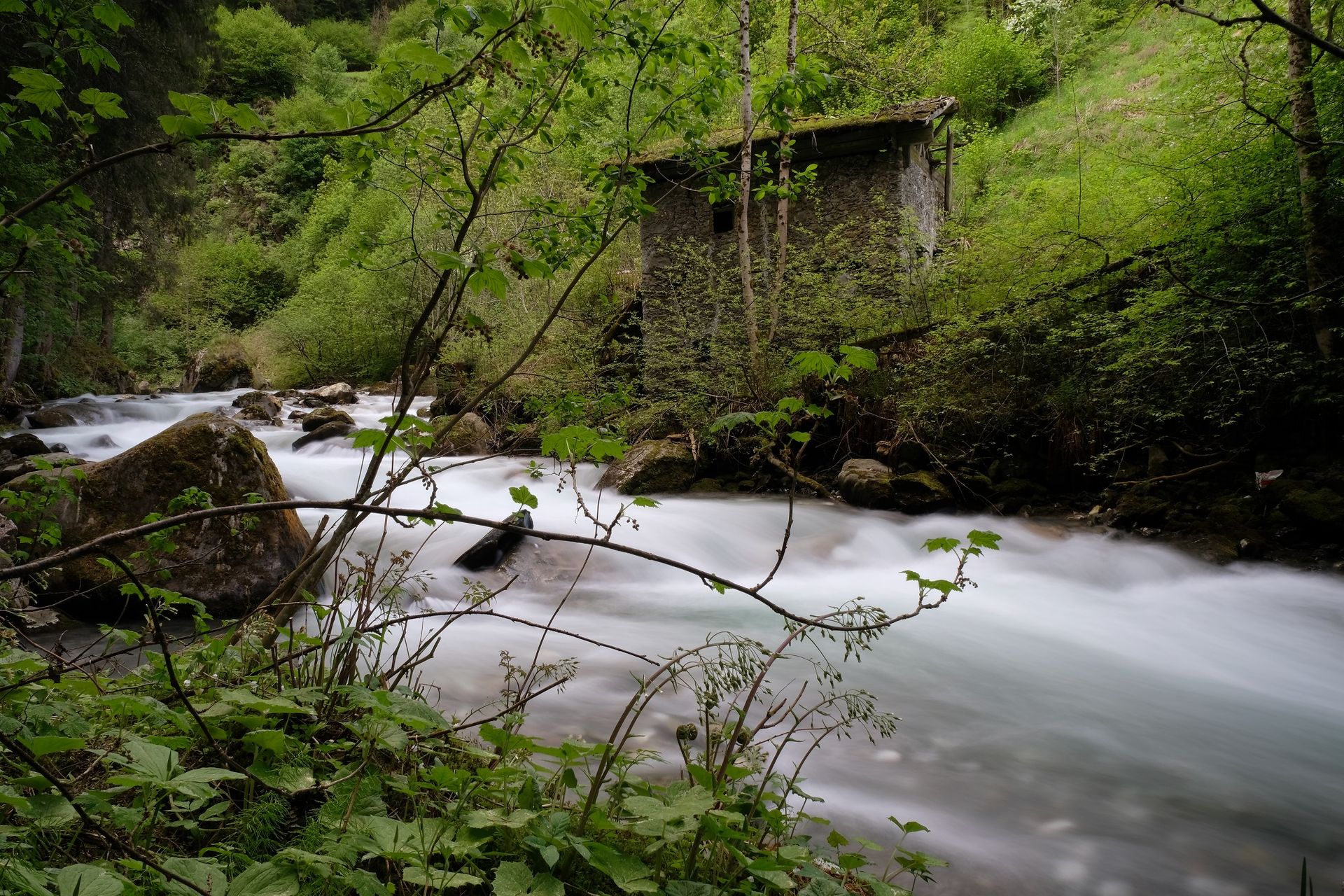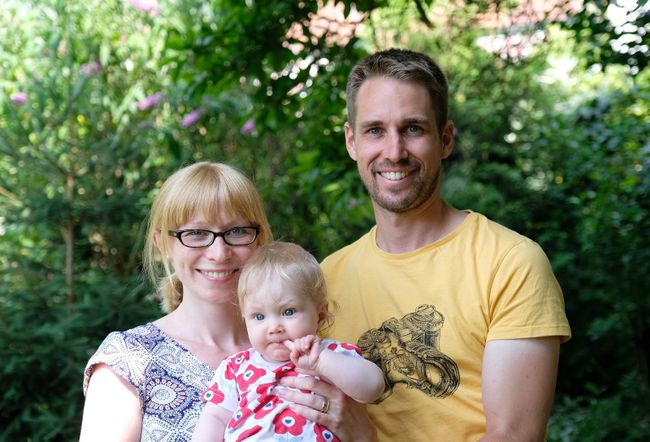
Erste Schritte
vakantio.de/erste-schritte
The circle is closing
Ku kandziyisiwile: 14.06.2019
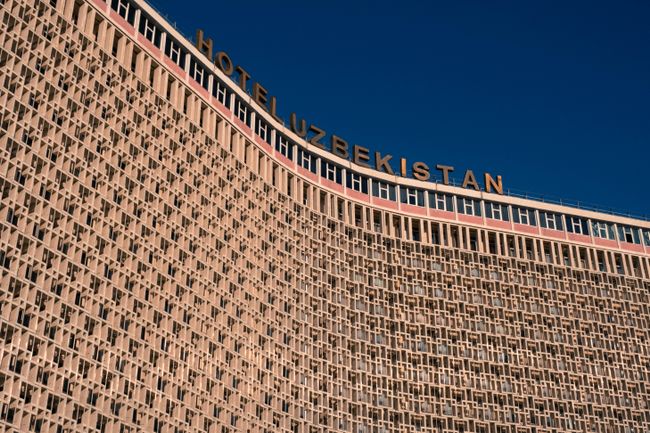
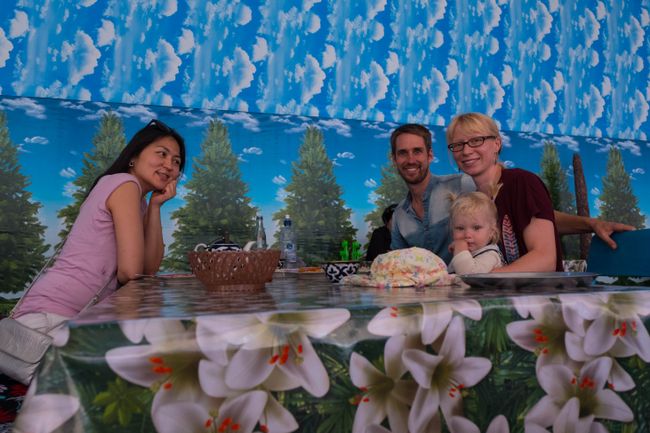
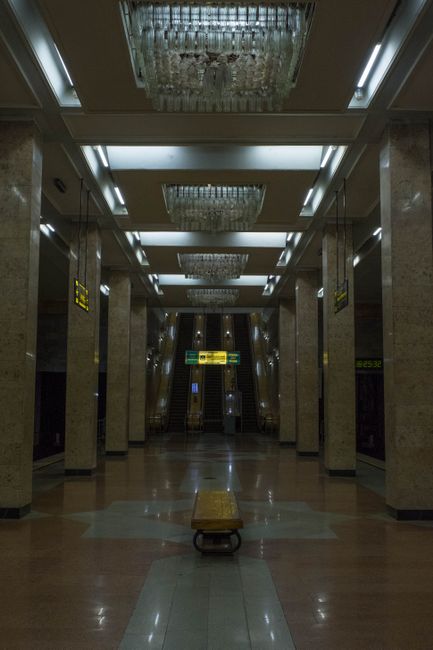
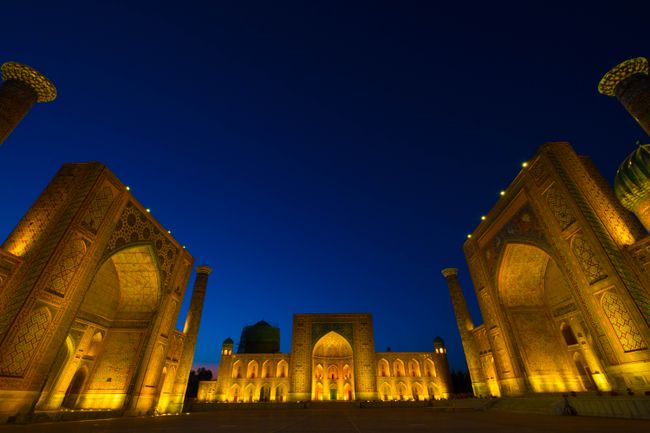
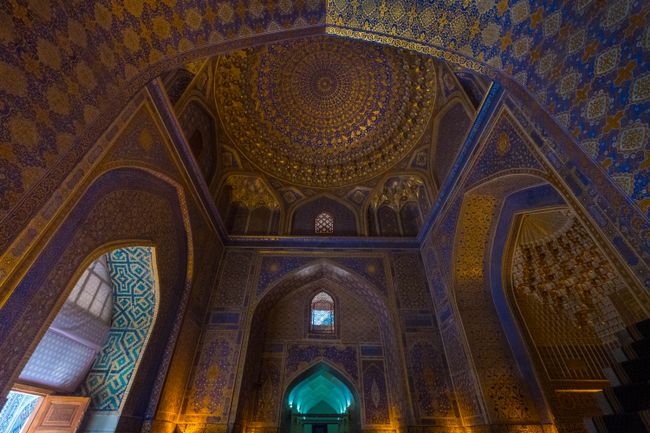
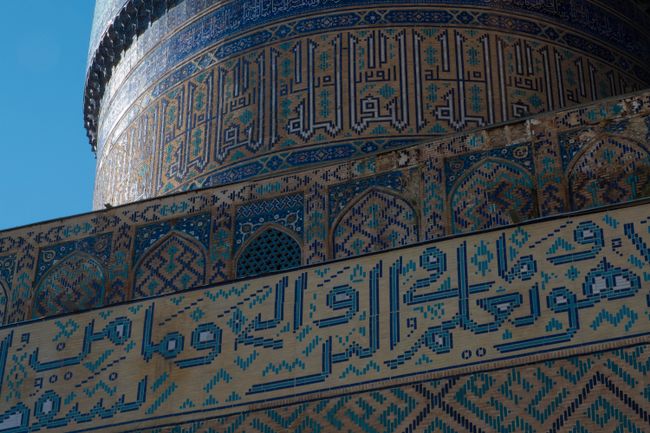
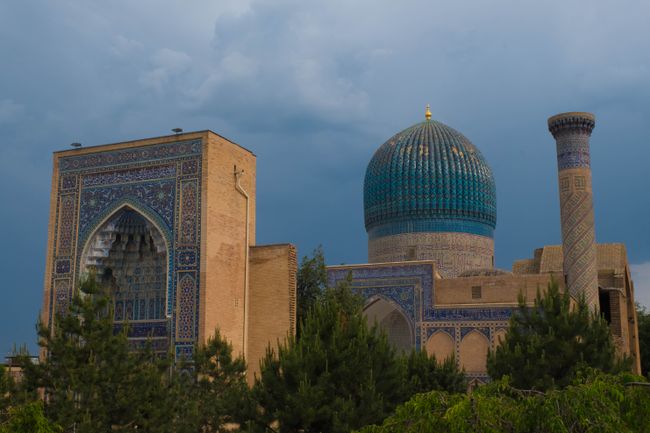
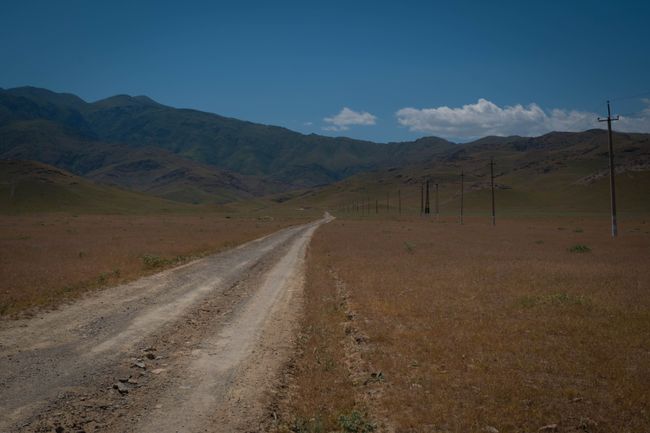
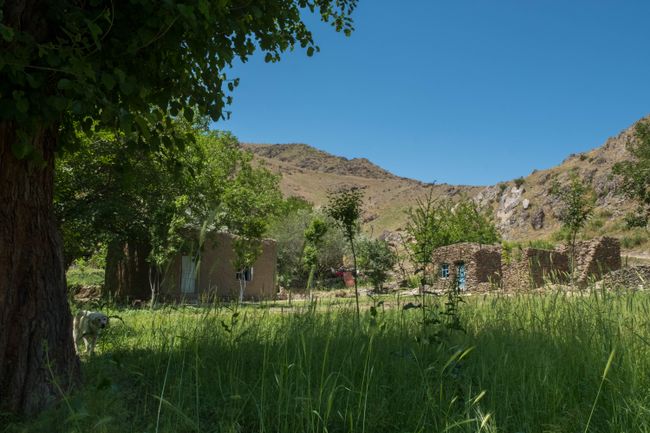
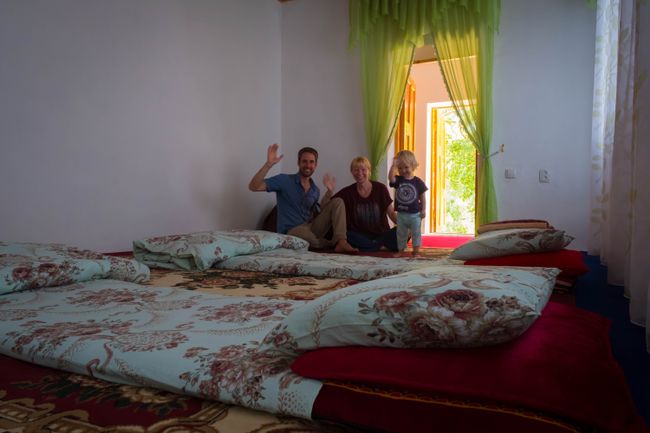
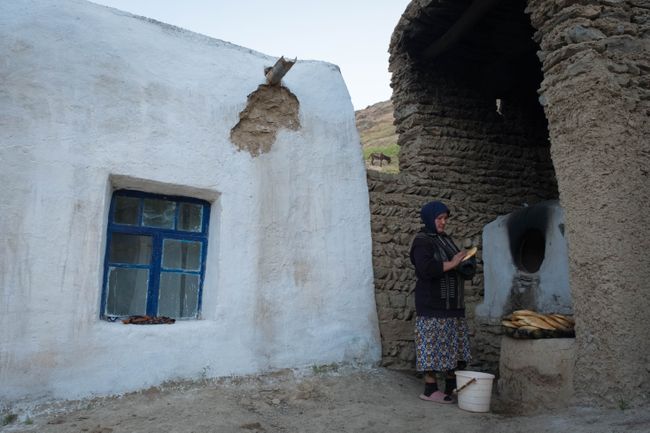
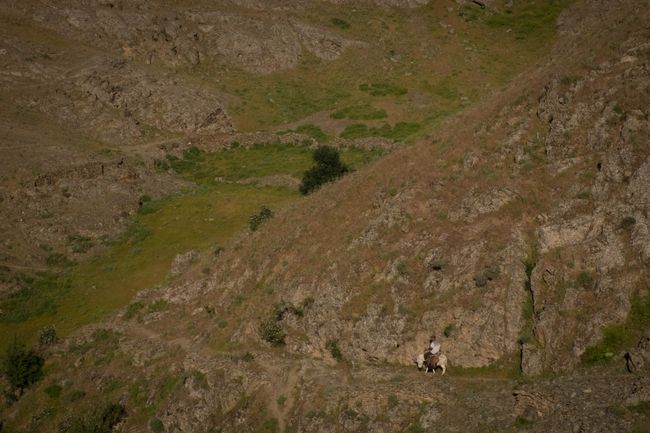
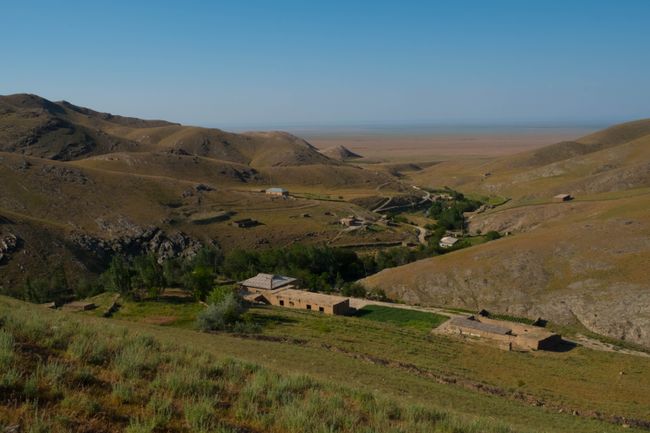
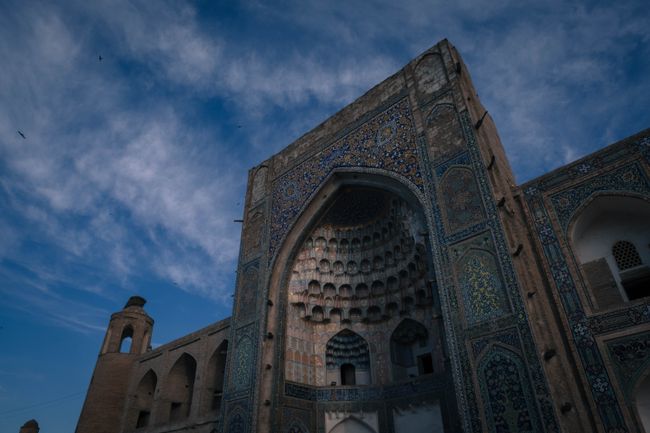
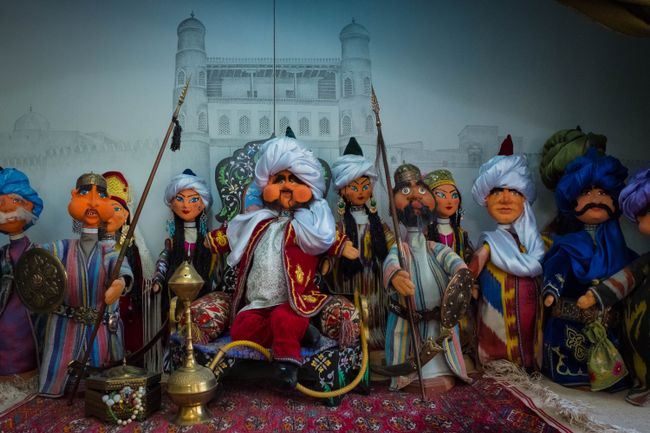
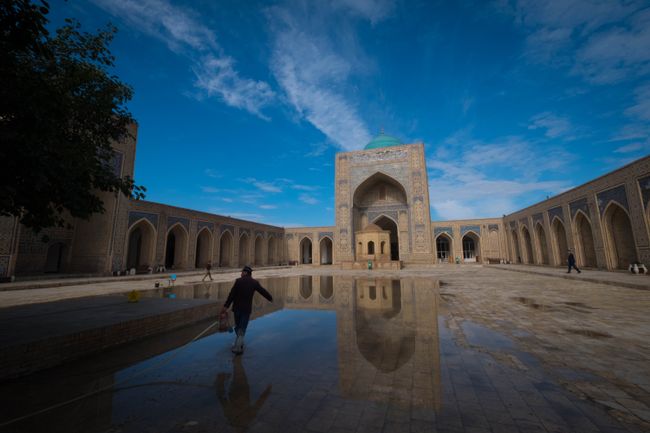
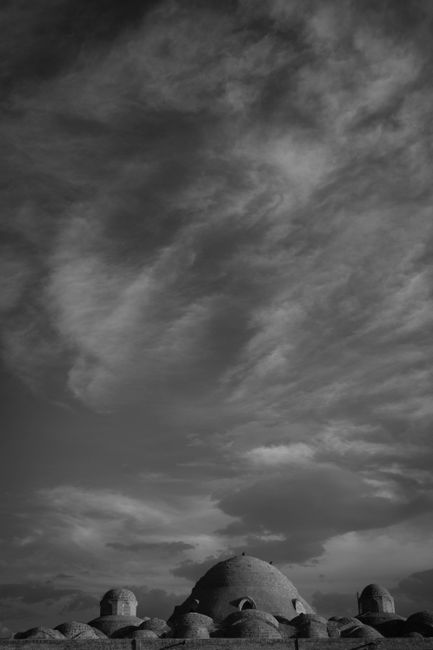
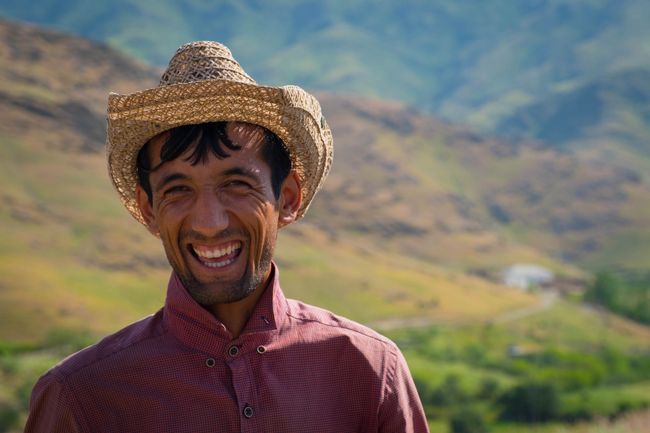
Tsarisa eka Xiphephana xa Mahungu
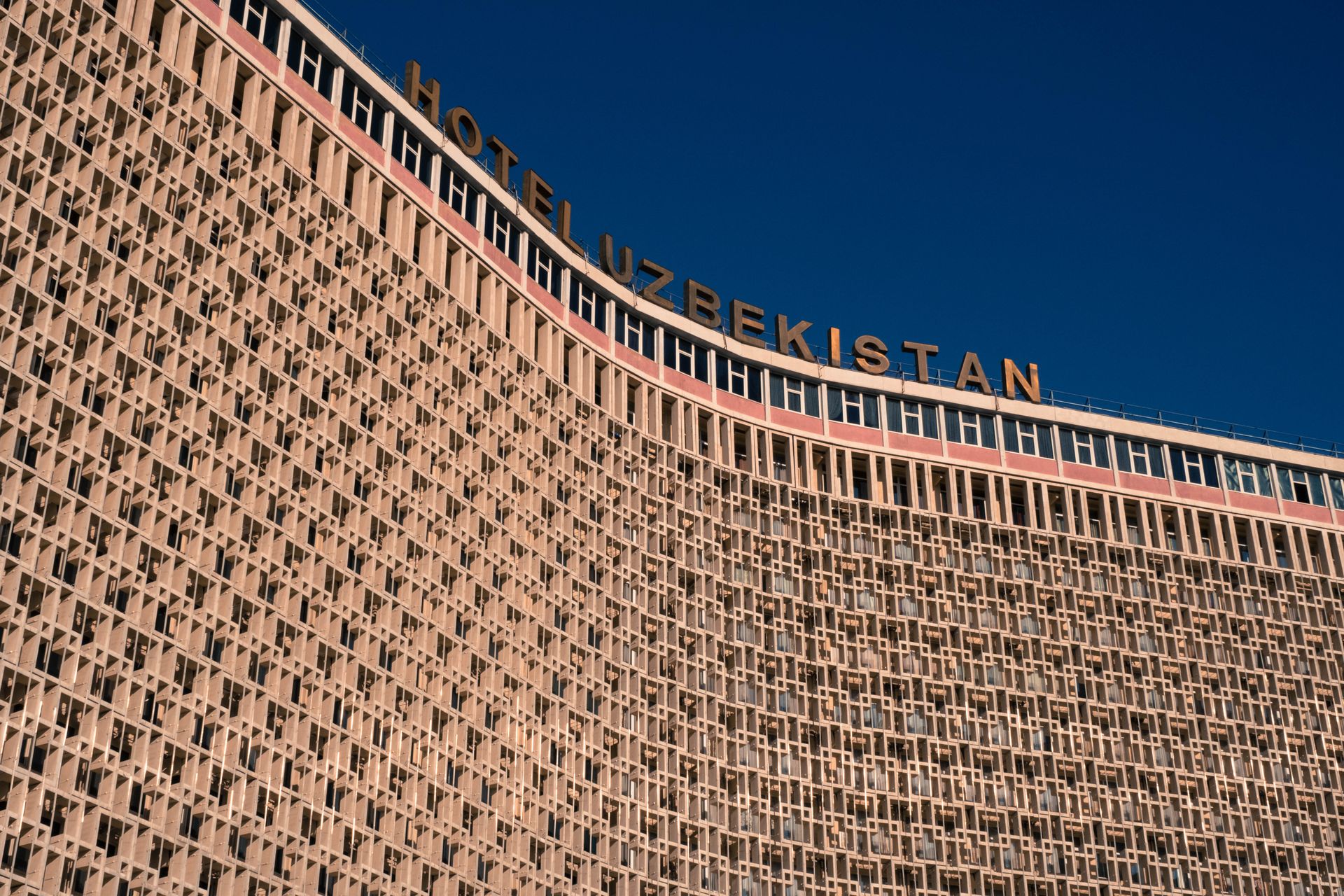
Right at the beginning of our journey, a seed was planted in our minds. A brief conversation in Georgia with an Uzbek woman made us curious about her homeland. After learning more about Uzbekistan and the whole region, our plan was set: we want to spend the final leg of our journey in Central Asia. Uzbekistan is conveniently located halfway between the eastern and western ends of the ancient Silk Road, making it a perfect stopover between Vietnam and Germany.
Silk Road - that sounds like bustling bazaars and tea-drinking in old caravanserais. However, our first destination is modern Tashkent, where white Chevrolets and old Ladas, as well as Soviet buildings with a somewhat desolate appearance, dominate the streets. Thanks to Couchsurfing, we find accommodation and are greeted at the airport by our host Adele. So technically, we spend the first nights in Uzbekistan with a Uighur family. Adele's parents moved from Uighuria in western China to Kazakhstan and then to Uzbekistan as children. Adele spends a lot of time with us, her mother cooks superbly, and the whole family welcomes us warmly. At the end of our stay, they urge Antonia, Adele's youngest Couchsurfer so far, to come back as a solo traveler in the future.
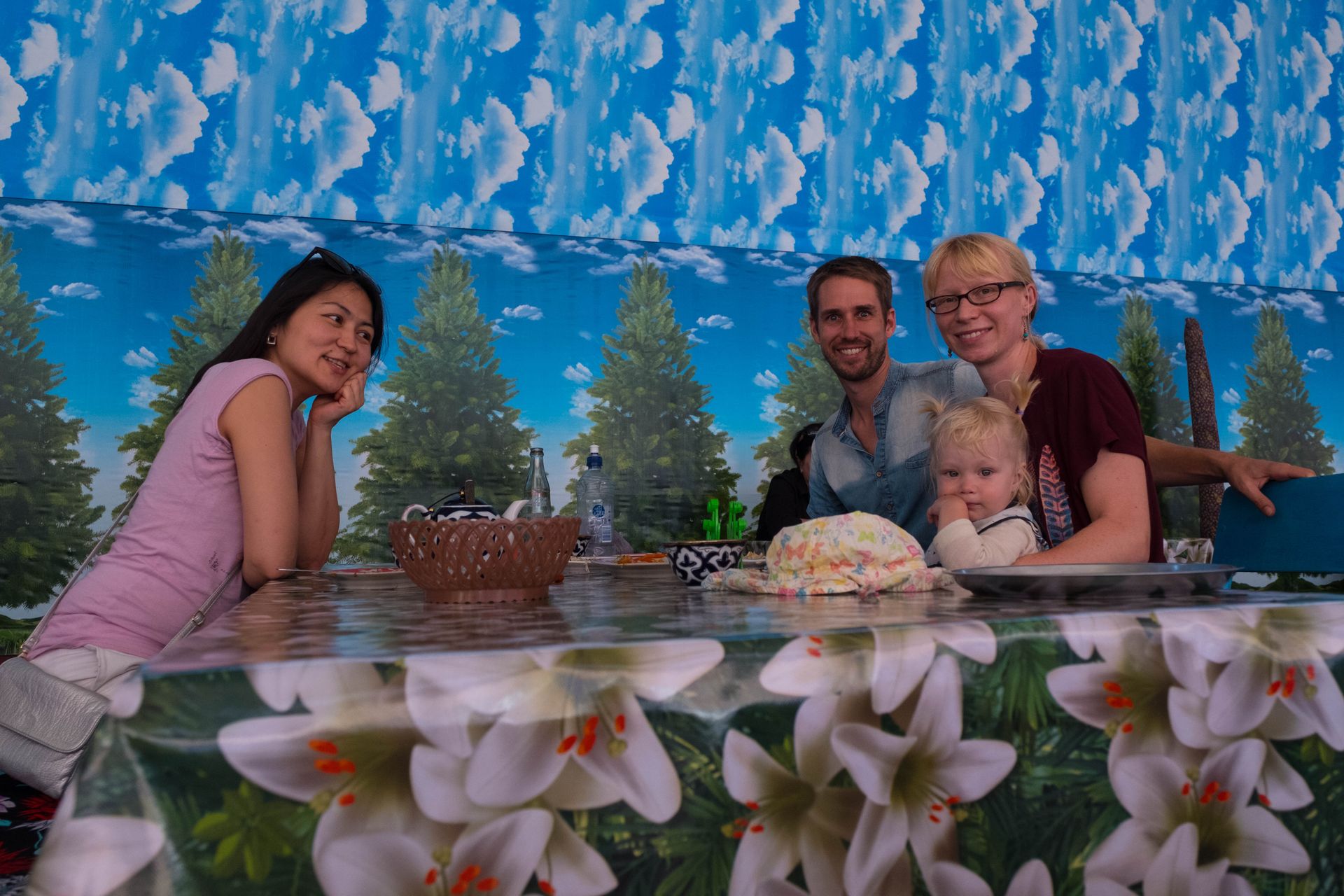
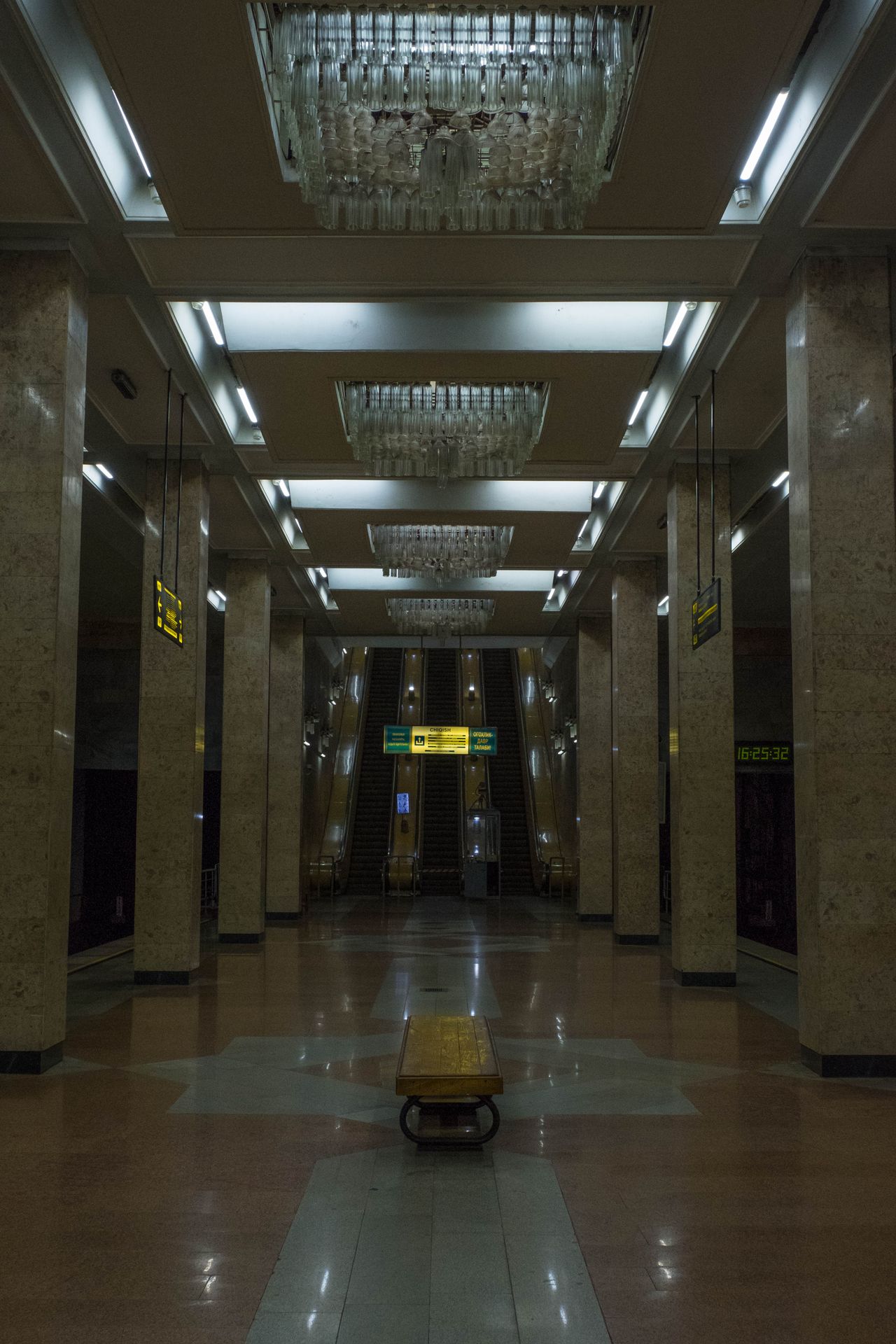
We travel by train from Tashkent to Samarkand, one of the centers of the ancient Silk Road. The mausoleums, mosques, and Quran schools, known as medressas, with their huge entrance portals can be seen from afar. We are surprised by how well-maintained the city is. The neighborhood where the main attractions are located has obviously been renovated and prepared for visitors. Initially, we are impressed by the detailed blue, turquoise, and gold mosaics adorning the facades. However, after spending two days exploring the Islamic buildings, we are slowly becoming a bit disillusioned. As impressive as the buildings are, they have become mere museums and are no longer lively places. Instead of authentic bazaars or tea houses, the interiors are now filled with tourist shops offering the same products.
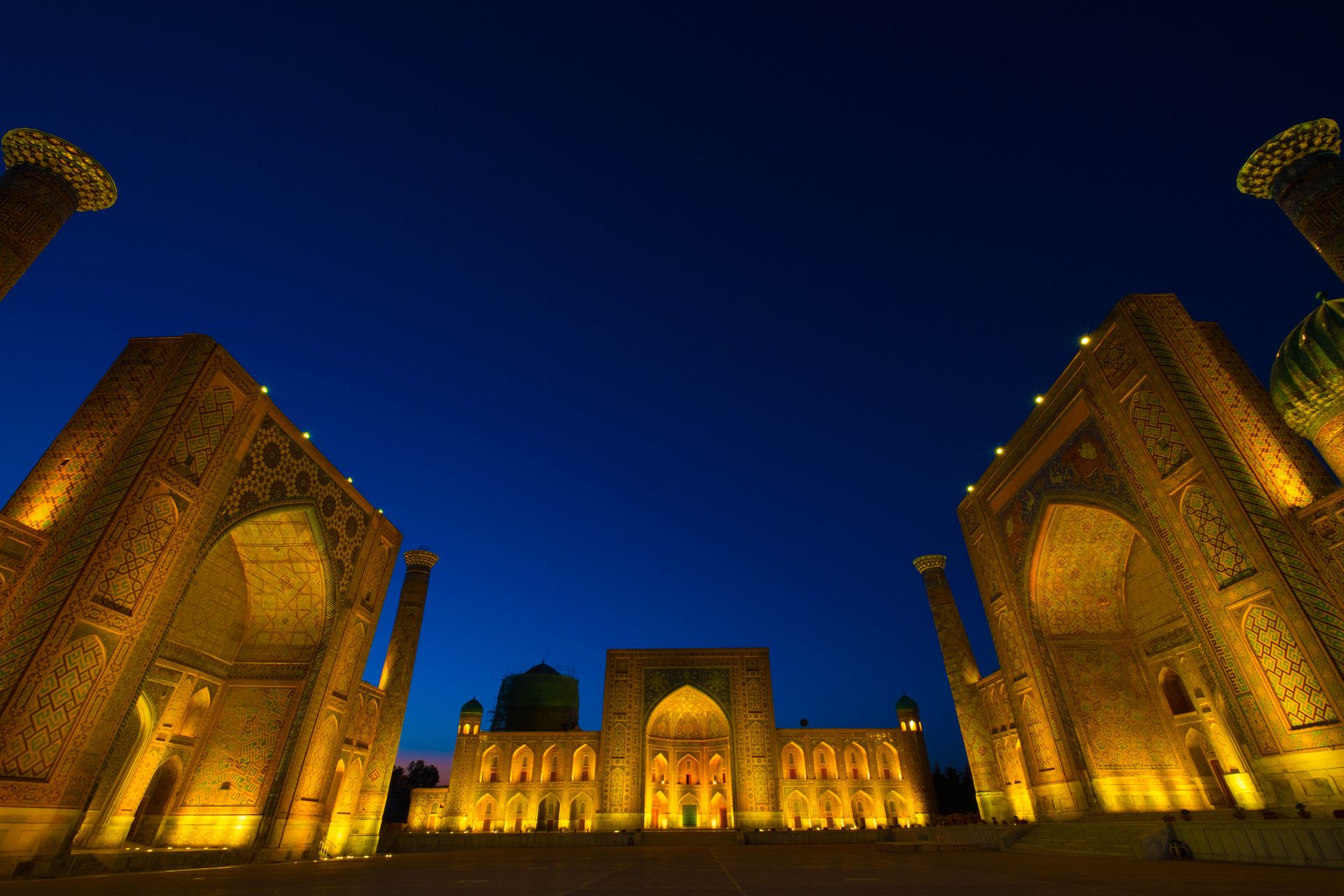
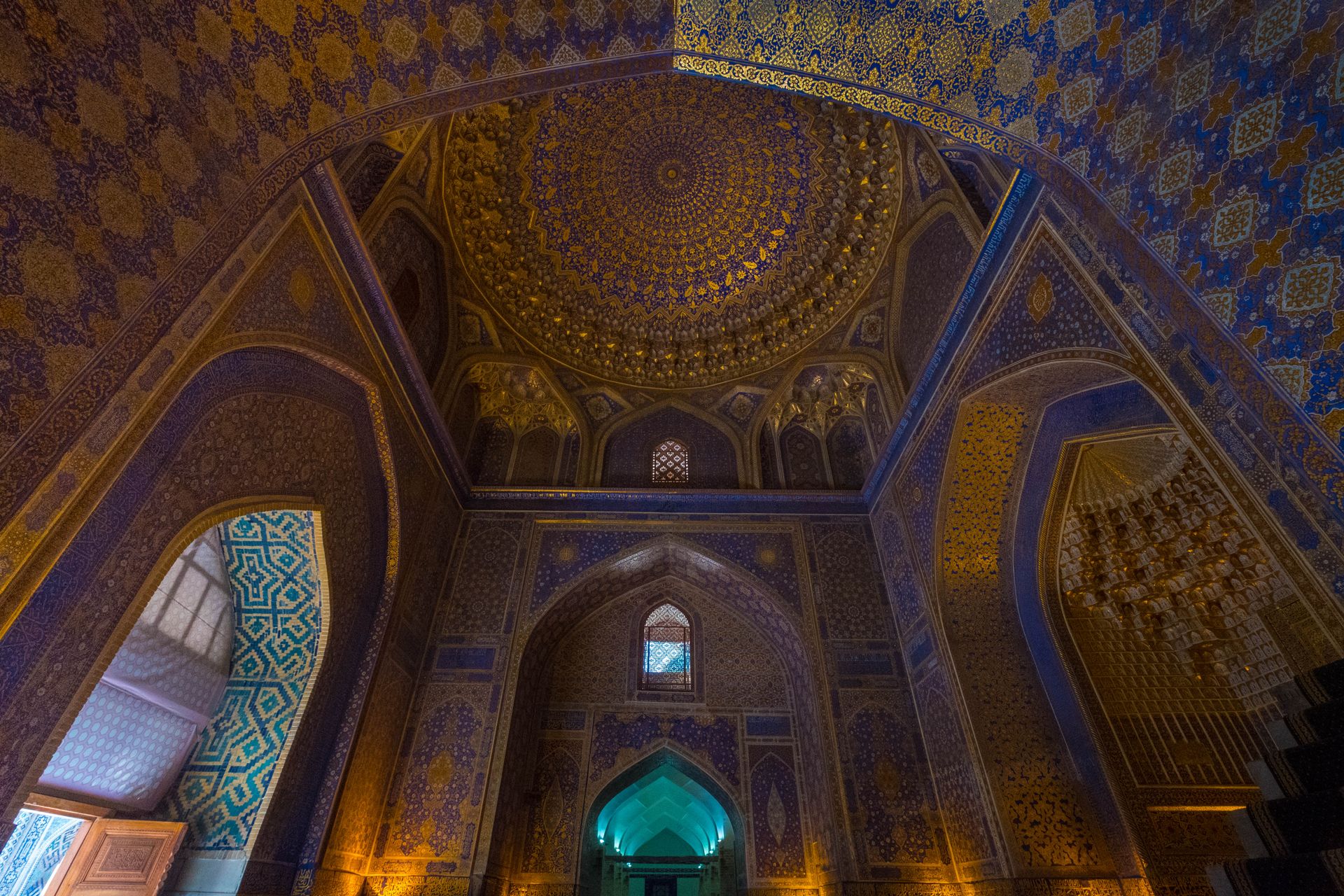
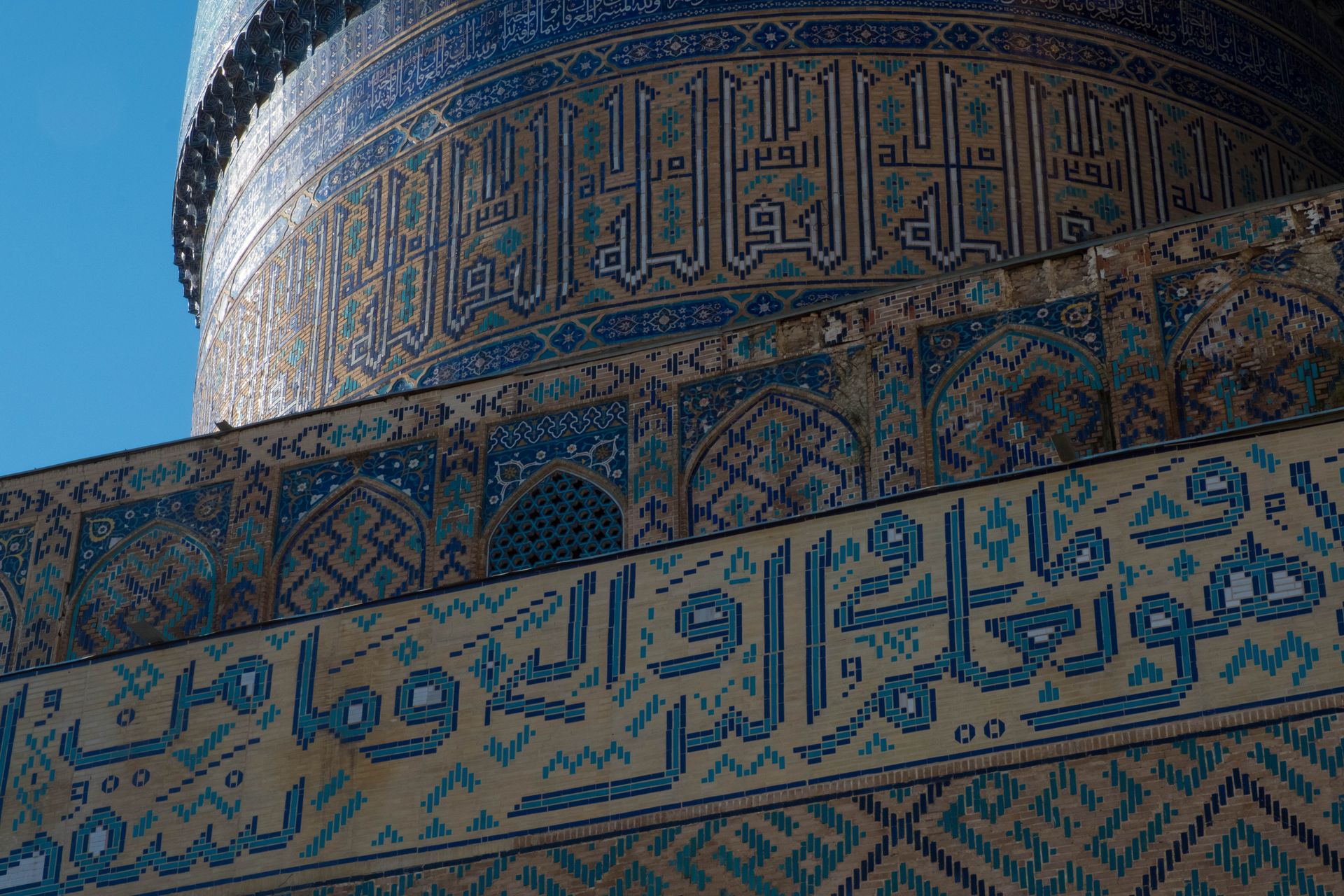
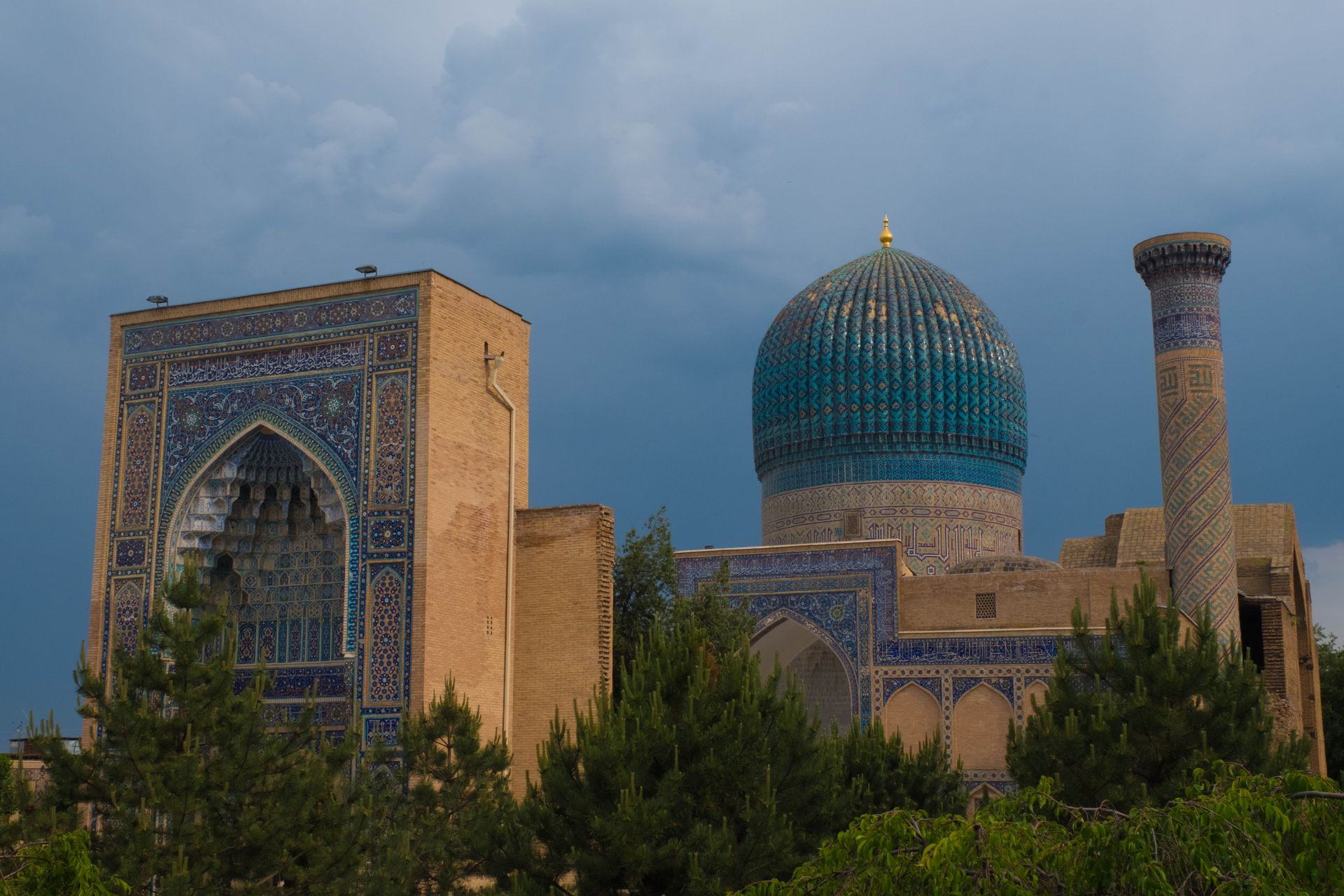
Tired of mausoleums and medressas, we seek some diversity. We book a tour to the Nuratau Mountains, where we spend two nights in a guesthouse with a local family. One day, we hike with a guide through the mountains, and the rest of the time, we enjoy their hospitality and the tranquility and cool air of this small oasis amidst the barren mountains. The warmth of the family and the idyllic location make this trip a highlight of our stay in Uzbekistan.
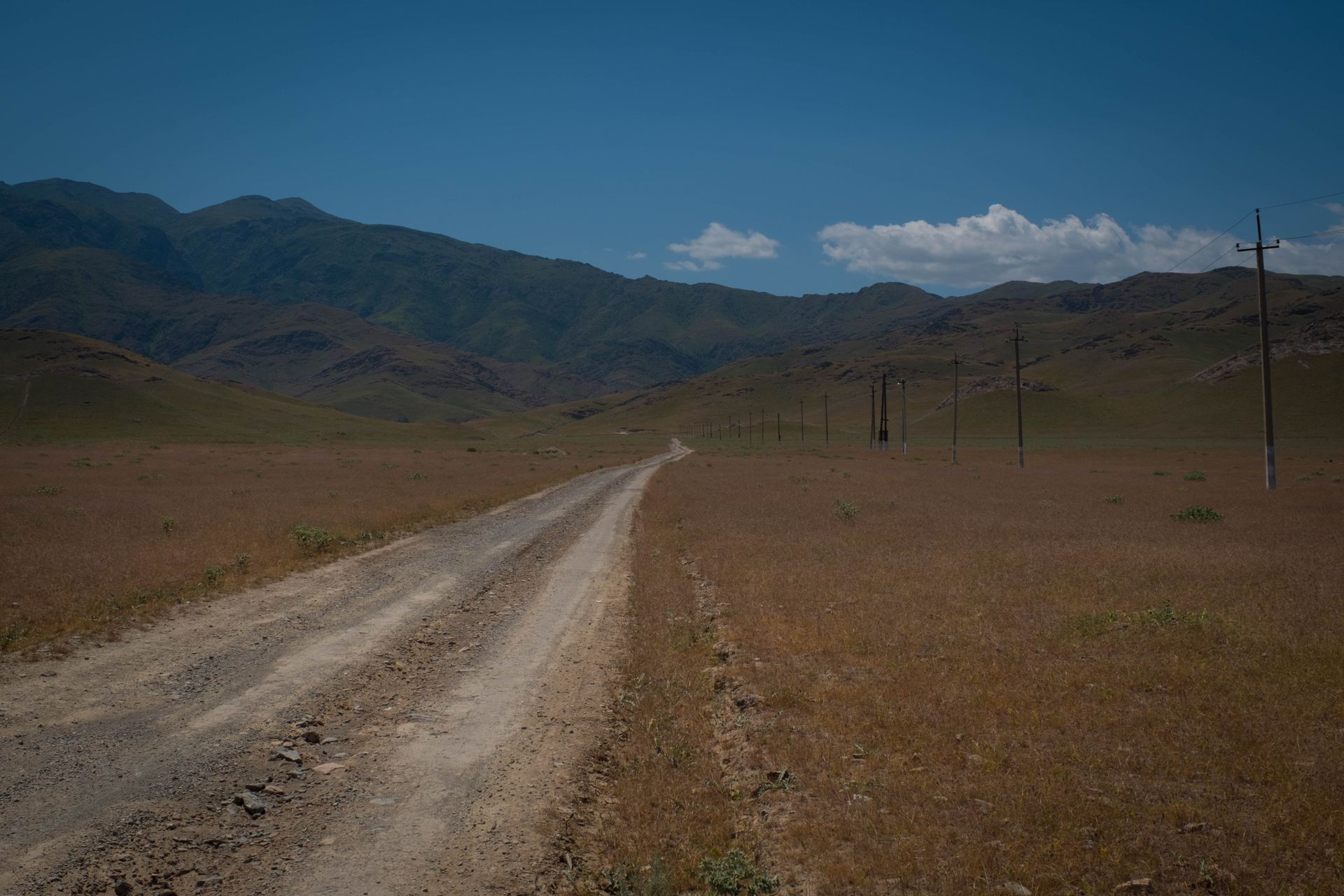
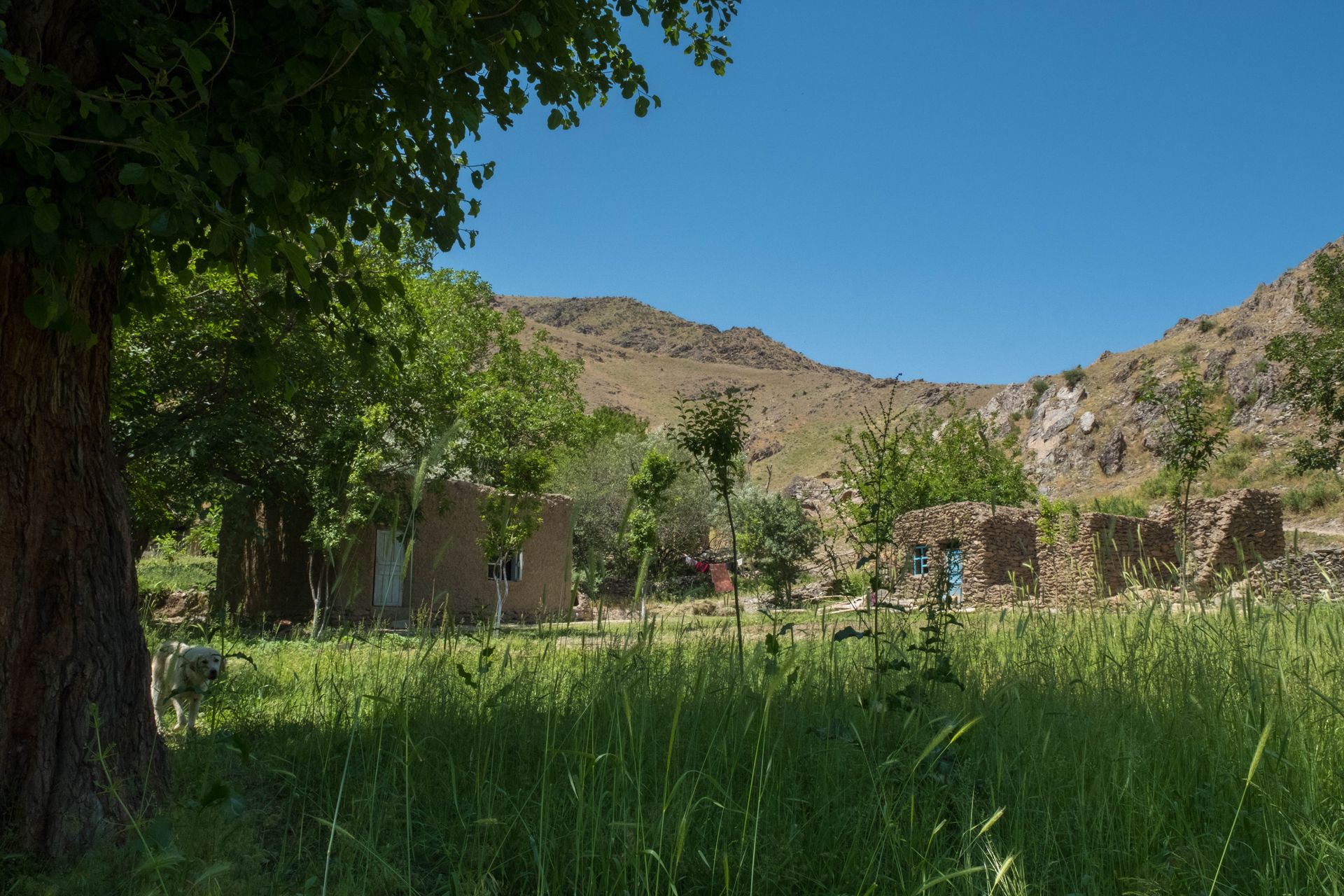
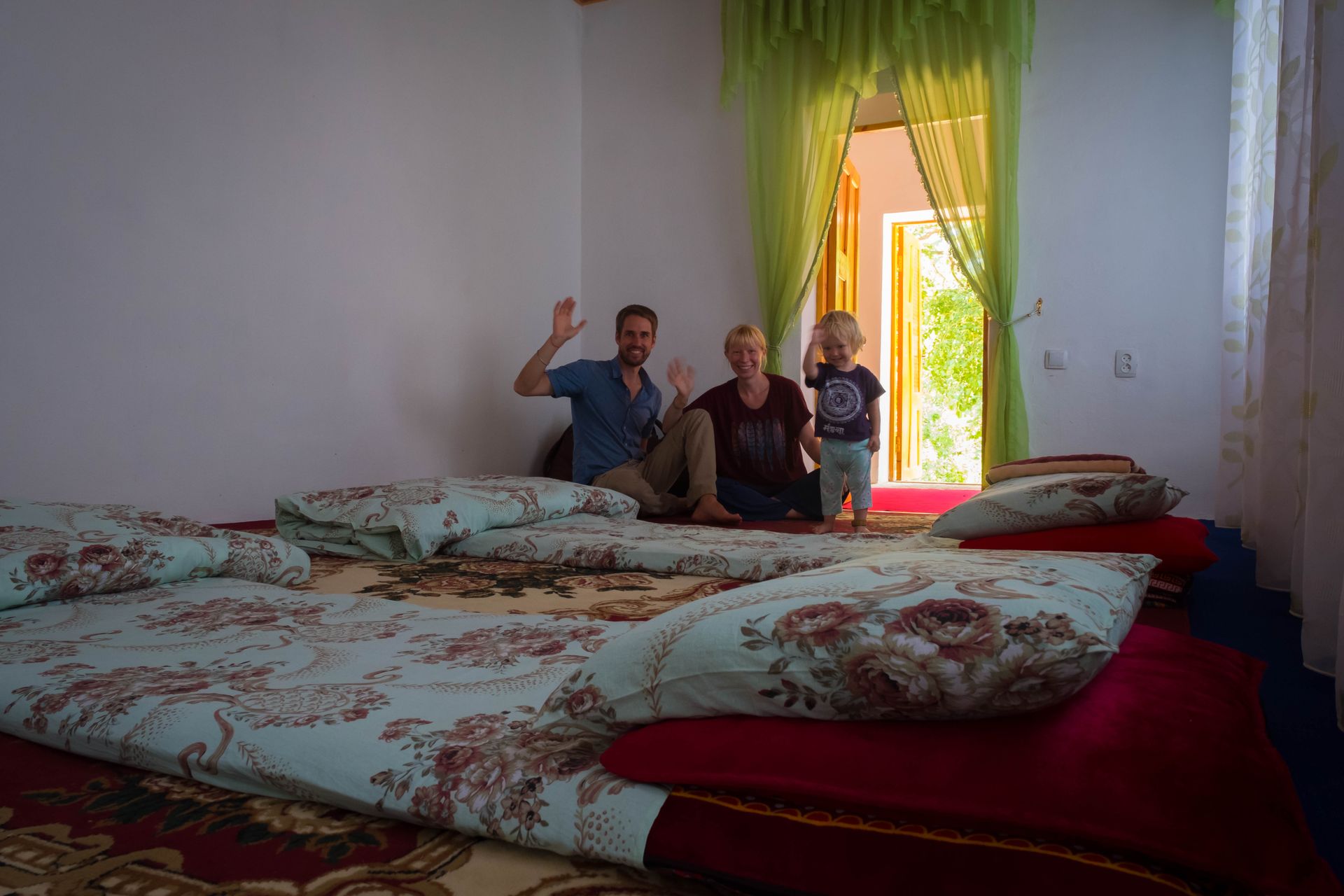
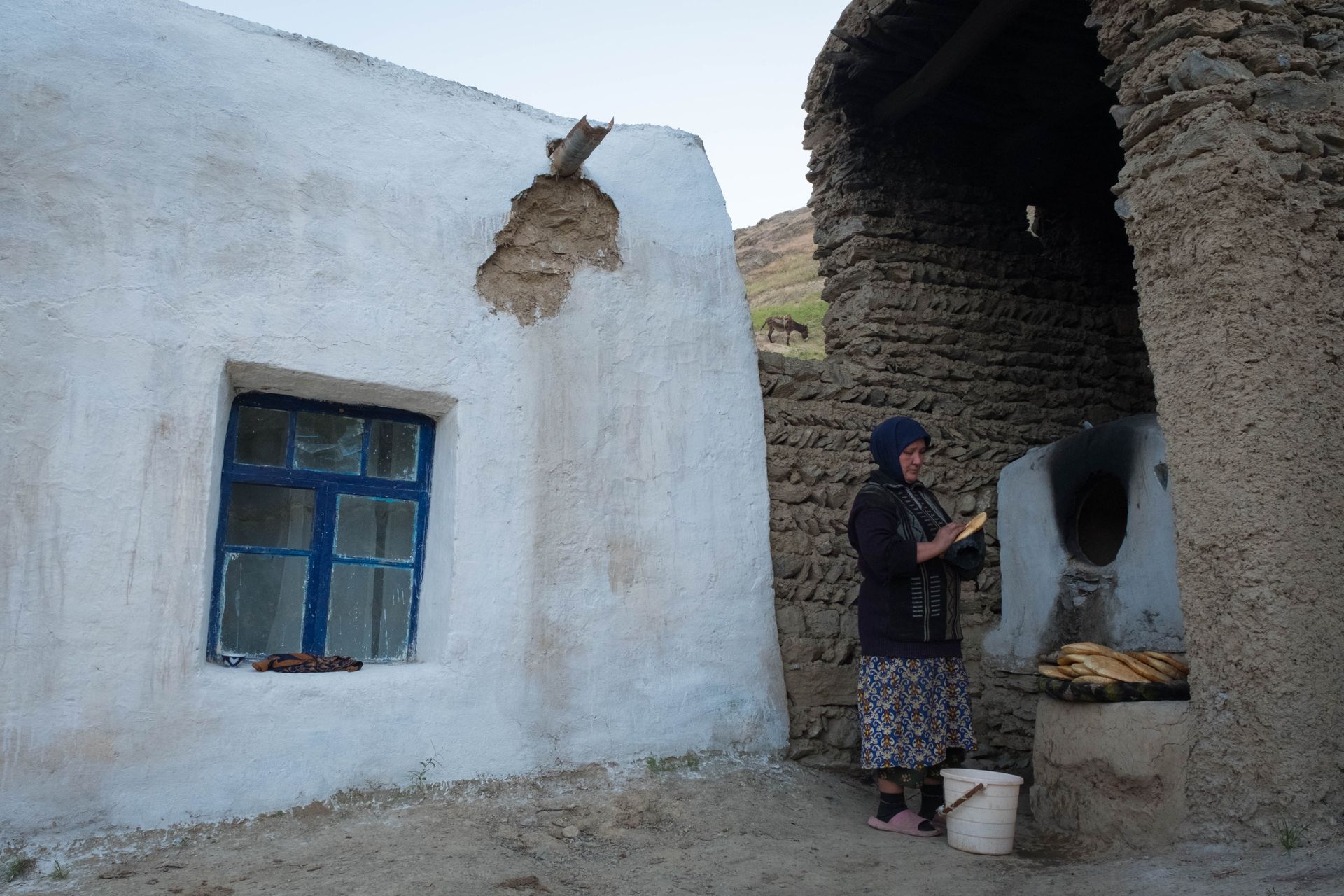
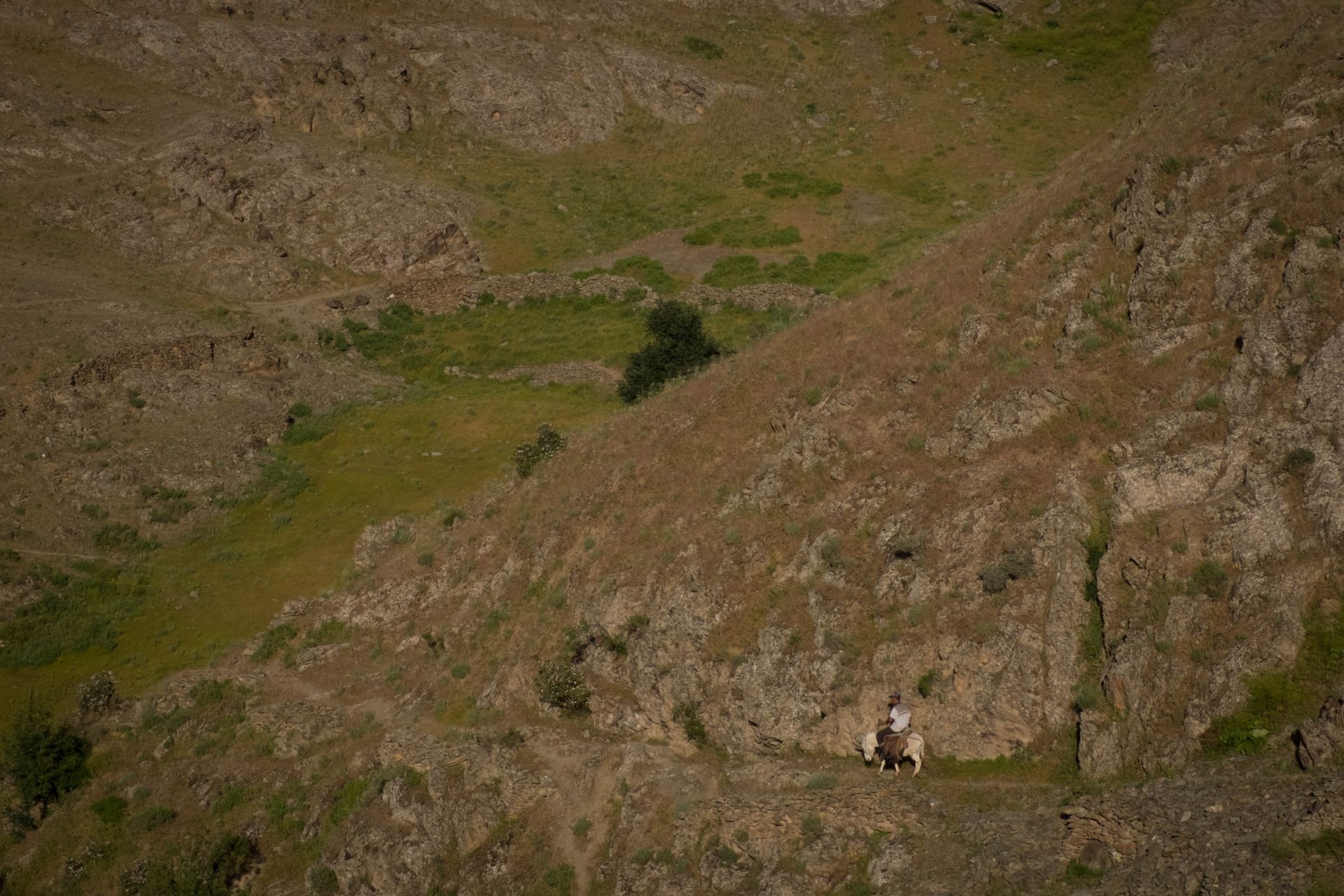
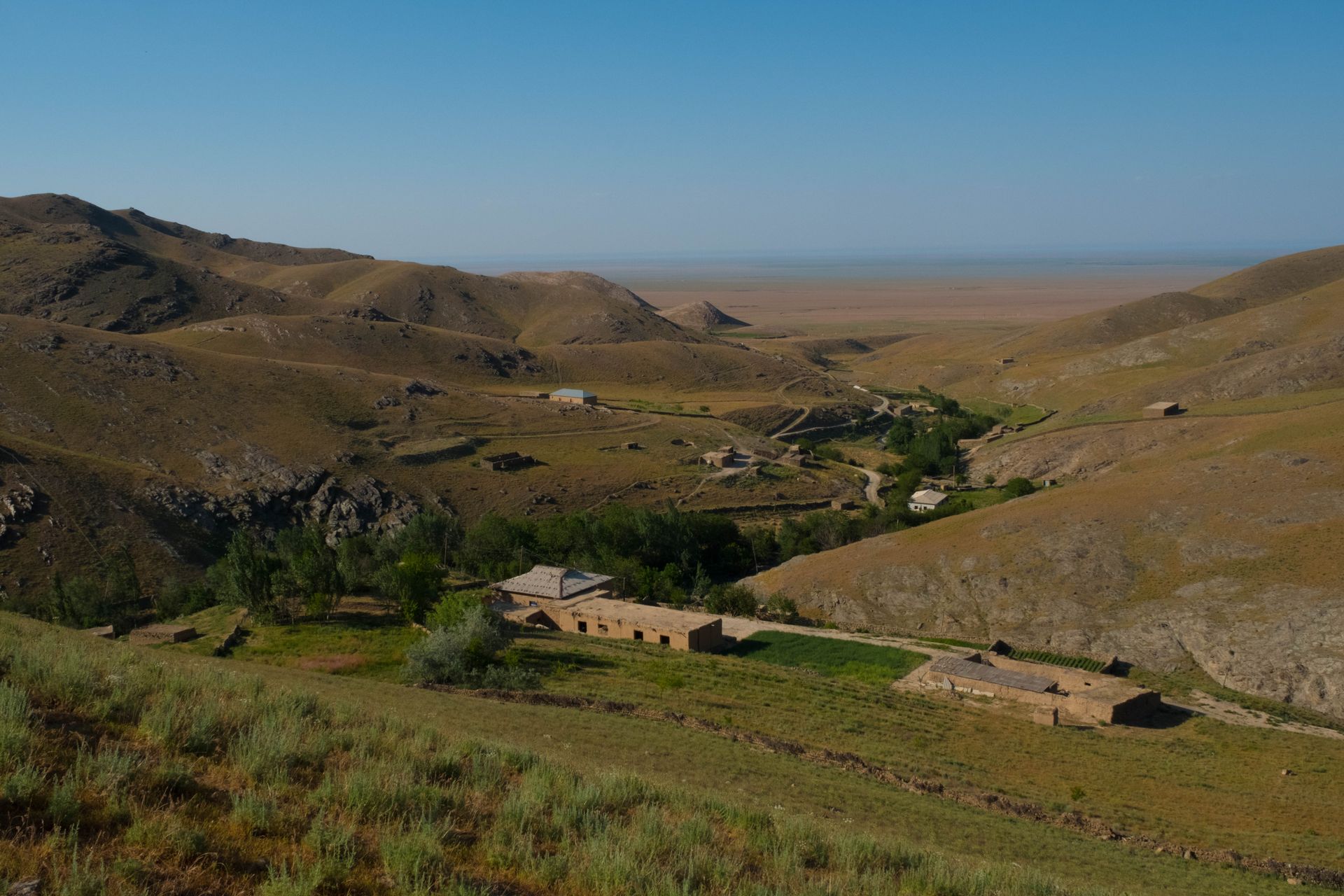
After this break, we are ready for the next city. Bukhara is mainly known for its well-preserved or renovated old town. However, Bukhara doesn't impress us either. As beautiful as the old town is, we feel a lack of atmosphere. After one day, we feel like we've seen it all. Matthias needs the remaining three days to recover from a stomach bug anyway. Antonia also got sick for the first time during the past weeks. Overall, we are experiencing a bit of a slump and our travel motivation is fading.
At least one influence of the Silk Road is still present in Uzbekistan: tea-drinking, especially green tea. To be precise, they call it "Chai" here. As we learn, there are only two words for this beverage in the world with a few exceptions: the variants that sound similar to "tea", such as the English "tea", the French "thé", or even the Maori word "tii", and various versions of "chai". Both words originate from Chinese, where tea was originally spread to the rest of the world. The "chai" variant is common in many dialects of Chinese and has spread along the Silk Road through Central Asia, Persia, and Sub-Saharan Africa. The "tea" variant, on the other hand, comes from a dialect spoken on the coast of China. This word was spread via shipping routes across the Pacific, along the African coast, and into Europe.
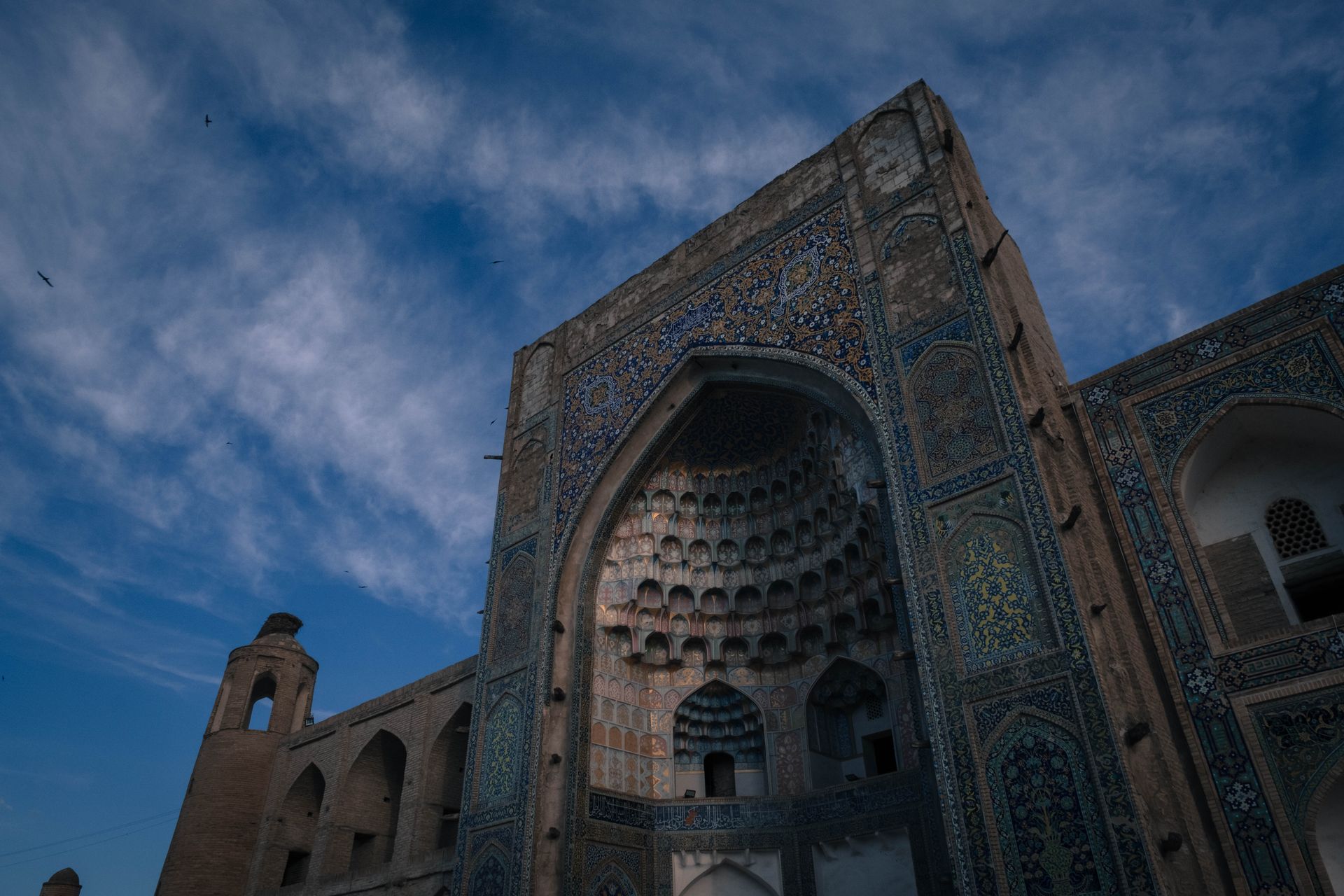
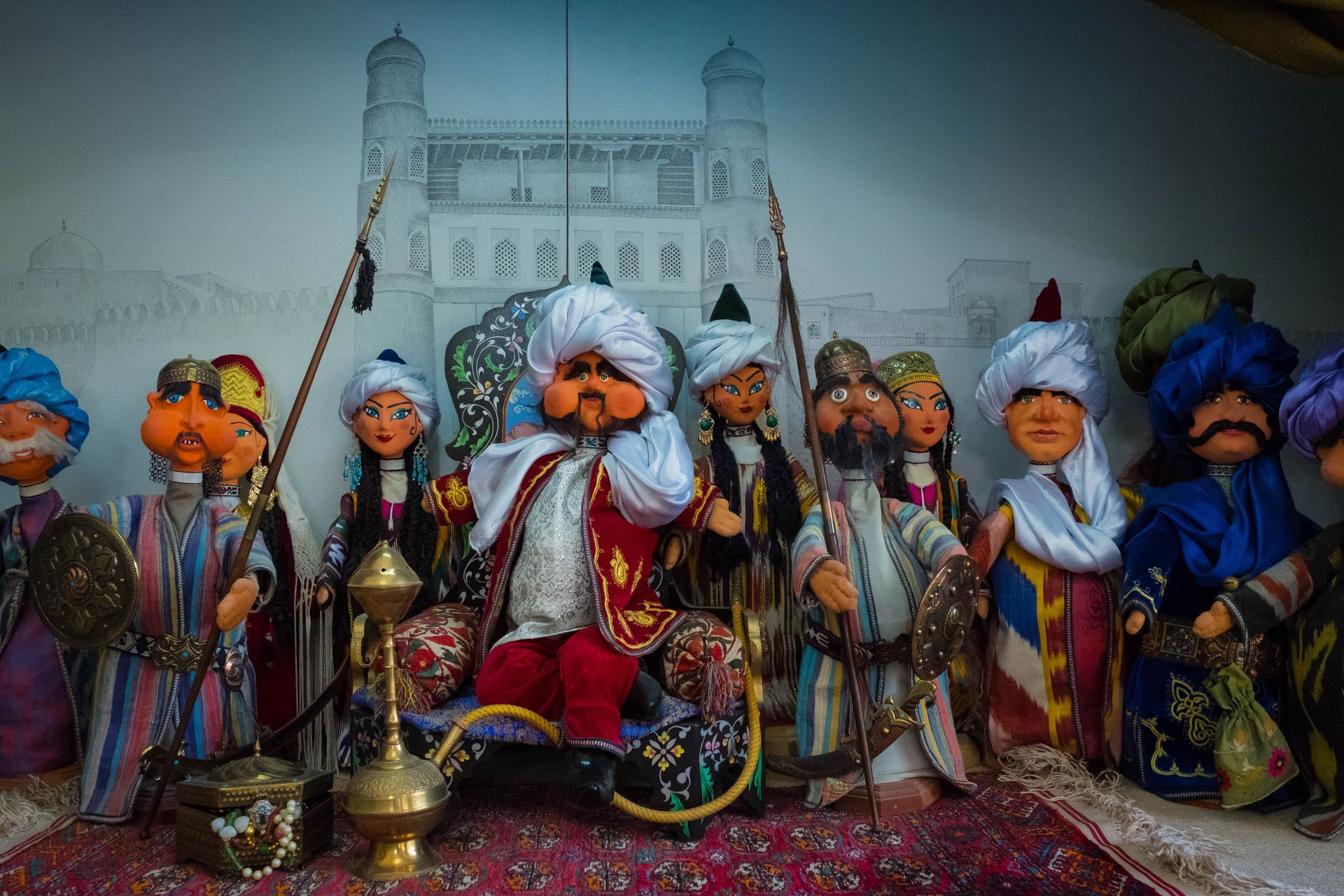
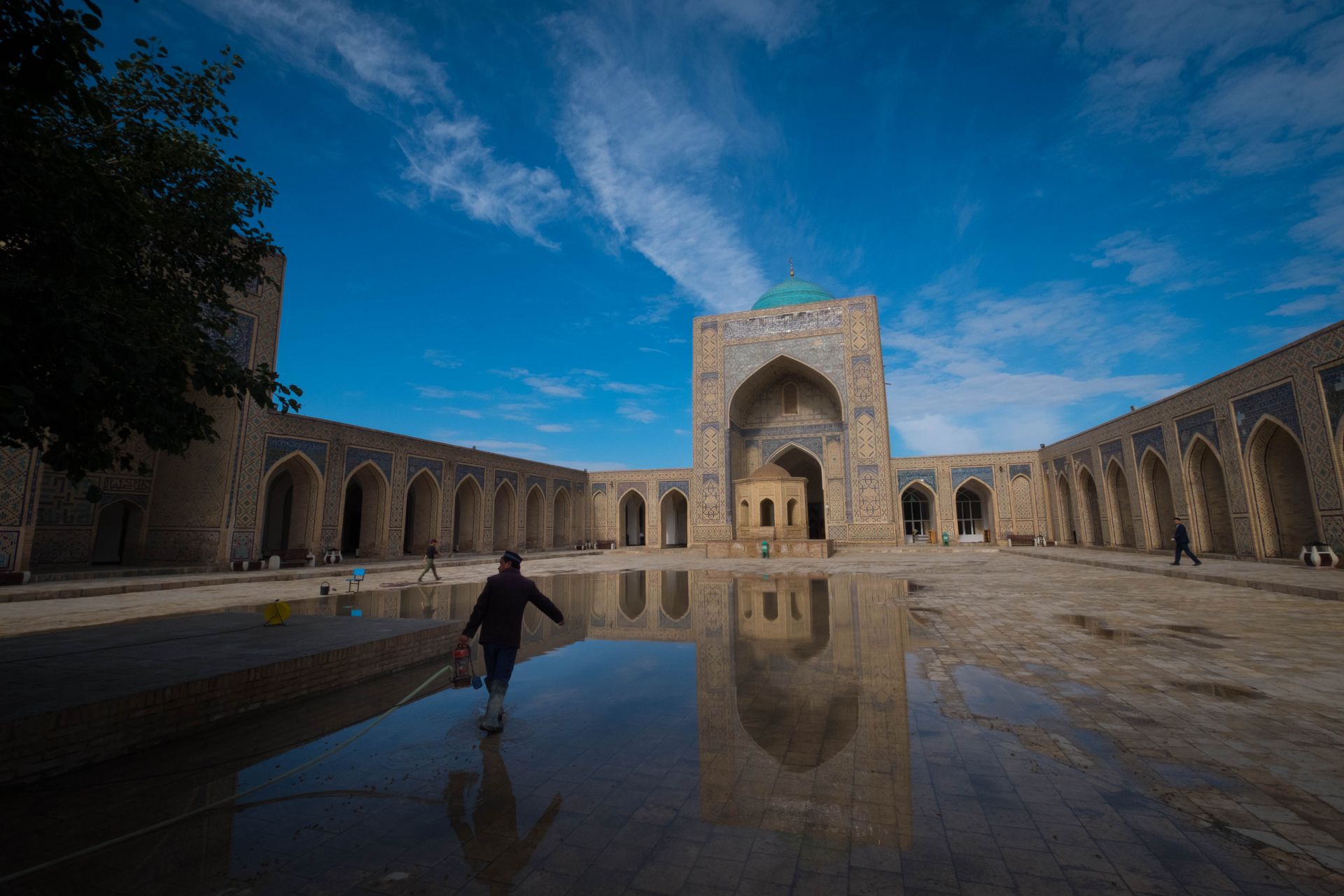
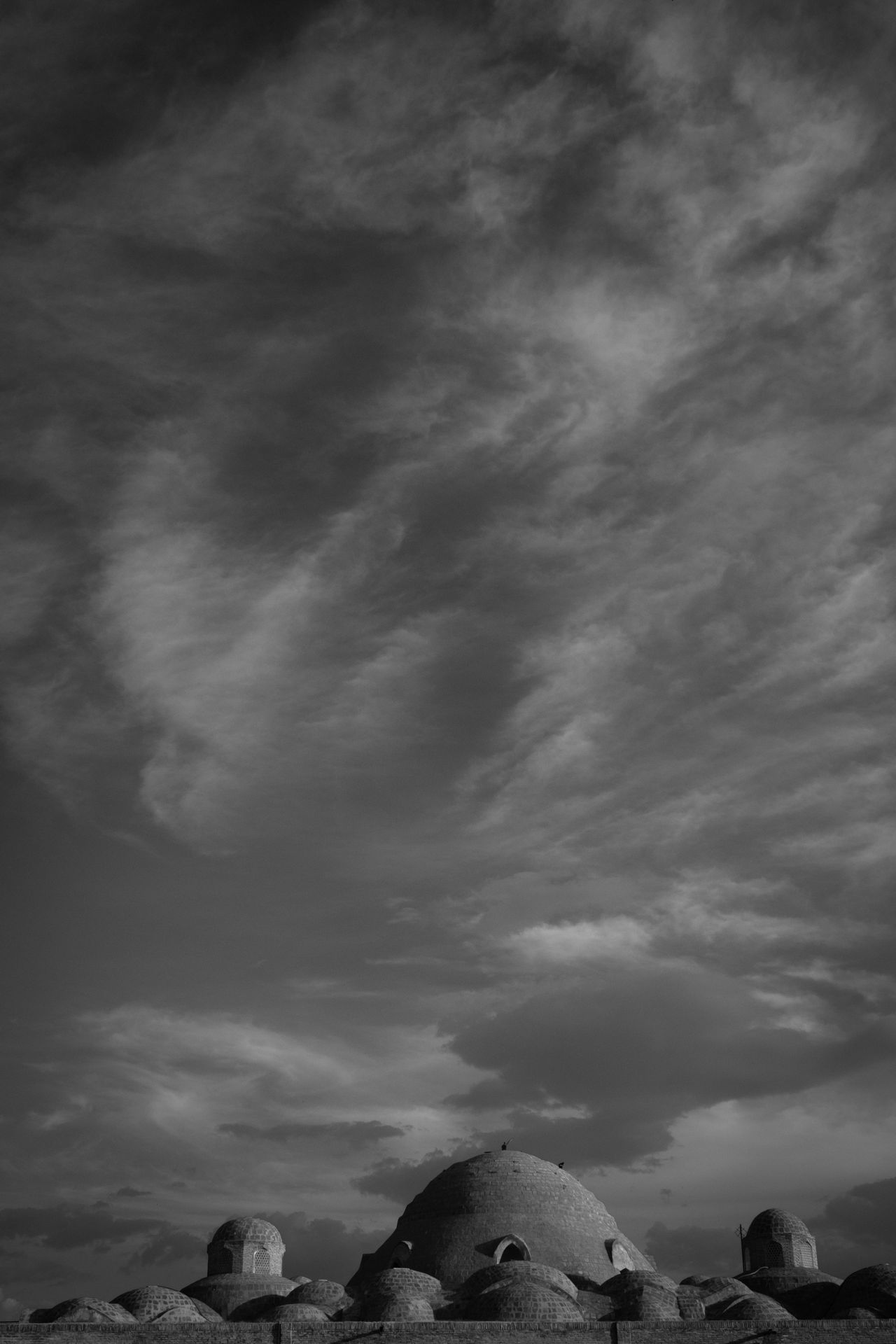
Tourism in Uzbekistan is currently undergoing a transformation. Since the beginning of the year, tourists from most countries no longer need to apply for a complicated visa. While we meet many European tourists on organized group tours, individual travelers from Western countries seem to be slowly discovering this destination. Traveling in Uzbekistan is not always easy for us. It is only possible to withdraw dollars from a few ATMs, and then we have to search for an exchange office. Most Uzbeks we meet do not speak English. With our Russian vocabulary limited to about five words, we rely on Turkish, which is very similar to Uzbek, and sometimes we even get by with German better than with English. Most of the time, we mix all languages in one sentence, and sometimes people understand us that way.
However, the helpfulness of the Uzbeks has often saved us. If we get stuck with our modest language skills, someone magically appears who speaks English and translates for us. This can even lead to the extent that the person rides in a taxi with us to make sure we find the place we are looking for. People are happy that we are interested in their country. Like the baker who welcomes us with a radiant smile and gives us pastries, or the taxi driver who refuses payment for his services because he is happy to have a chance to speak a few words of English with us.
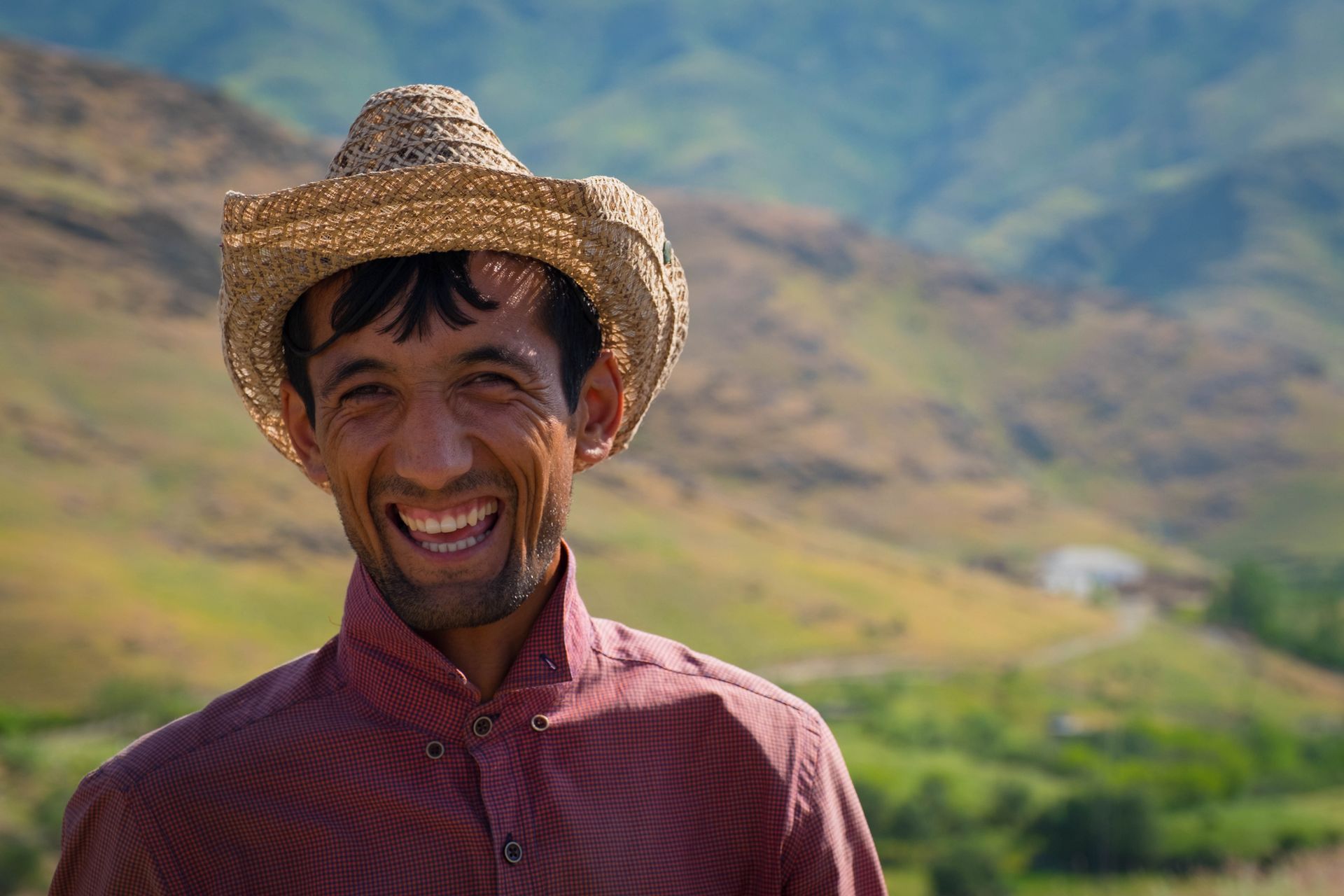
On the other hand, we were a bit shocked by the notions that some Uzbeks have about Germany. Independently of each other, we spoke to two young women who do not want to travel to Germany out of fear of Syrians or "dangerous men". We wonder how this dramatic image of Germany is formed.
For us, it feels like the circle is slowly closing: due to the clear Soviet influence, many things in Uzbekistan remind us of the first weeks of our journey in Georgia. Not least, we are drinking the mineral water from Borjomi again, whose source we visited last August. Since we find Uzbekistan less exciting than expected, we decide to travel to Kyrgyzstan earlier than planned, where the prospect of snow-capped mountains lures us.Tsarisa eka Xiphephana xa Mahungu
Nhlamulo
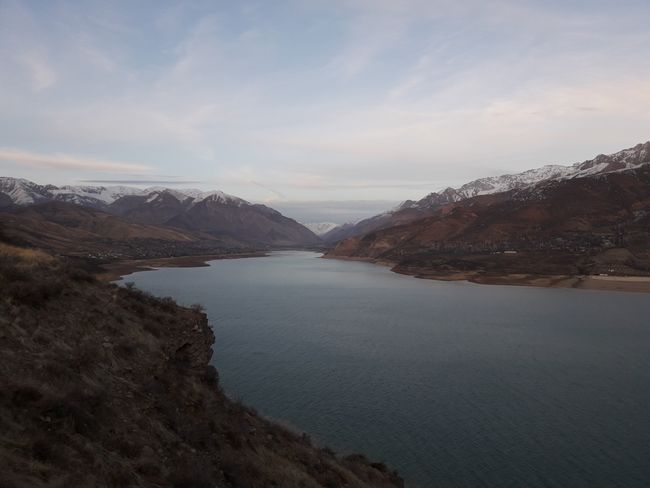
Swiviko swa maendzo Xiuzbekistan
